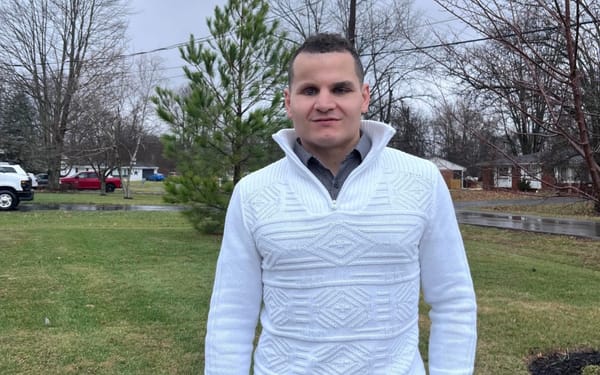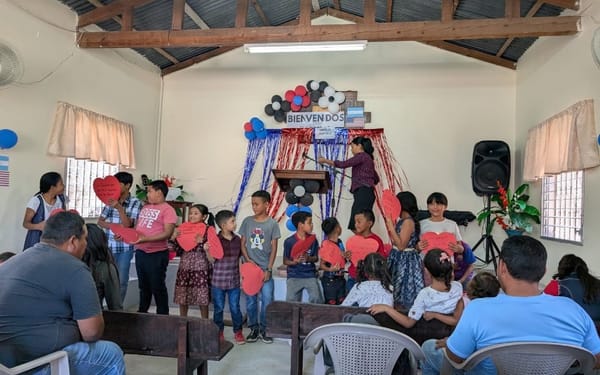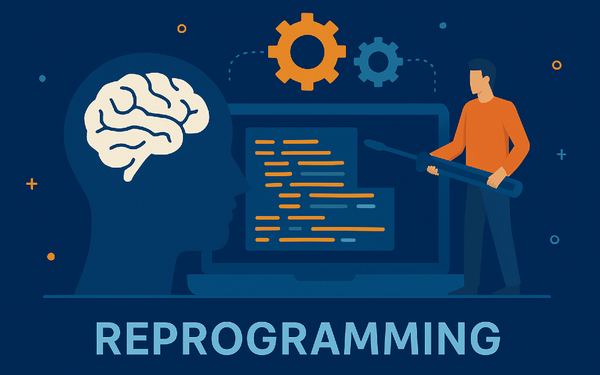Don’t Stop With Know

The old saying, “People don’t care how much you know until they know how much you care” remains true. Unfortunately, within Christianity, I believe we have too many what I call “lifetime students.” Occasionally I run into someone like this. They might possess multiple bachelors, graduate, and even post-graduate degrees. Yet, they have very little fruit to show for their labor. In fact, they have become somewhat of a dysfunctional human being. They struggle to maintain healthy relationships and often bump around from job to job.
Unfortunately, Christians often struggle with being educated far above their level of personal obedience (although this trend might be starting to change in Western culture). Honestly, it’s pretty easy to do and a trap I struggle to avoid. Reality check: It’s much easier to listen to another sermon than to apply the one you have already heard.
It's much easier to listen to another sermon than to apply the one you have already heard.
So what do we do? How do we avoid this trend? I think the solution is in asking ourselves how we personally understand and apply knowledge.
Several years ago I heard my professor in Bible college, Dr. Philip Brown, say that when it comes to knowledge, there are really four different levels in which people process all of the information they receive. Using his outline, let me just share how this has changed my approach to reading God’s Word, listening to the podcasts I hear, and watching the Christian communicators I enjoy.
Level 1: Recognition Knowledge
The first of these is what Dr. Brown refers to as recognition knowledge. On this level, information is strictly processed in a quick and time efficient manner. An example of this would be a student who spends their energy studying for a multiple-choice test. They do not grasp the full concept of what they are studying, but they are able to recognize enough keywords to be able to answer A,B,C, or D.
Level 2: Recollection Knowledge
The next level of knowledge has to do with a person’s ability to remember. An example of this might be studying for a fill-in the blank test. You remember the information, but you do not know how to apply it to your life.
Growing up in my teen years, I remember the times when I would go to a Christian youth camp in the heartland of Ohio, where I would participate in their yearly Bible quizzing competition. I would study upwards of 500 questions until I could recite the answers after the first 4-5 words of a question were read. On a recollection level, I was an A+. On a comprehension level, I was a C or a D.
Level 3: Explanation Knowledge
Deeper than recollection, there is what might be called an explanation level of knowledge. In this level, a person not only knows the answers to the questions they are asked but is also able to explain the concepts behind their answers.
I had a teacher in college named Dr. Mark Bird. He was famous for his essay answer tests. You could take it to the bank that every test you received from him was going to require you to give some explanation (Perish the thought, I know!). Looking back, this turned out to be more helpful than if he had just given us a simple fill in the blank answer sheet. This method forced the class to think through the responses they gave.
On an explanation level, you know what you believe and can articulate it in a way others are able to understand.
Level 4: Justification Knowledge
Finally, the premium level of knowledge and understanding is what is called justification. On this level, you go above and beyond mere explanation. You are able to justify how this knowledge is applicable to daily life. You live it out with every breath you take!
God does not expect that we have a justification level of knowledge for everything. Obviously, this would be impossible. But he does expect us to have this level of understanding on the topics in life that are important. He wants us to have a justification level of knowledge on the things that matter and a recognition level for things that do not.
The problem is we have the tendency to get these levels mixed up. We are able to justify with absolute clarity the latest baseball statistics, TV shows, and pop culture entertainment while struggling to understand some of the most elementary aspects of the gospel.
When it comes to understanding the things of God, it’s easy to settle for levels 1-3. But doing so robs us of the incredible blessing we experience when we go deeper. We go beyond internalizing our faith and begin to effectively live it out with every action we take.
A thought: The next time someone asks you a question concerning the things of God, ask yourself: “Do I currently live out the advice I am about to give?” Before telling another believer how to handle their finances, fix their marriage, or break free of a certain addiction ask yourself if you are being obedient to God in those areas. If the honest answer is no, tell them. Maybe say something like, “Hey, what I am about to share is what God’s Word says about this issue. But honestly, I’m struggling to put this into action in my own life. Why don’t we help each other?”
It's often easier to know the right thing than to do the right thing.
Frequently, in preparing messages each week to share with my congregation, my study of God’s Word leads me to a place of conviction prior to my delivery. Many days this is uncomfortable. Those times I was going to speak from Ephesians 5…but realized I had just spoken a sharp word to Janan. The Sundays I was preparing to speak on evangelism and realized I had not shared Jesus with someone that last week.
This last week, a couple in our church named Dave and Dana just gave me an excellent illustration of what it means to put faith into action. Currently, on Wednesday nights I am taking a group of 5-8 people through a book I will one day release called “Breadcasting: Taking The God I Love To Others.” Essentially, the heart of it is taking the time to invest what God has given us into the only eternal investment we can make in this lifetime, and that’s people.
Joining us was a man I had just met a few hours earlier when I felt impressed to start a conversation with him and bring him along. As it turned out, he was going through a tough time. He had recently gone through a divorce and did not currently have a place to stay (A story not too uncommon for our neighborhood).
Here is where it gets good. That night at the close of our study, Dave and Dana decided to put their faith into action. Setting aside any plans they had for that evening, they stayed with this gentleman until late into the night. The next day they helped him go to the right offices in the city to file for his unemployment status. Not only that, they found him a place to stay for several days and even found a friend of theirs who offered this man a job.
Few things make me happier as a pastor then when I see stories like this. Yes, knowledge is important. But living what we believe is where true life change begins to happen!





